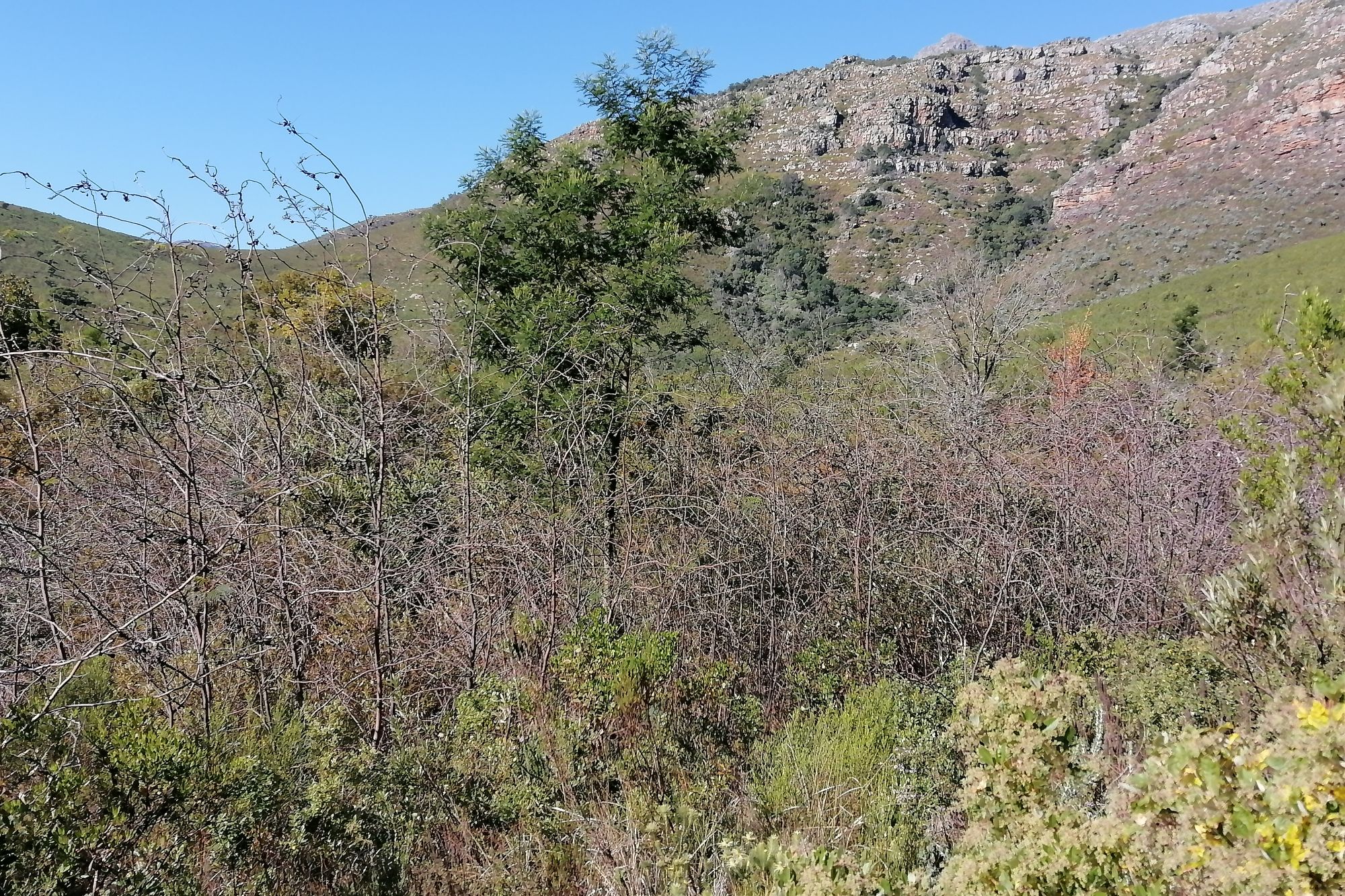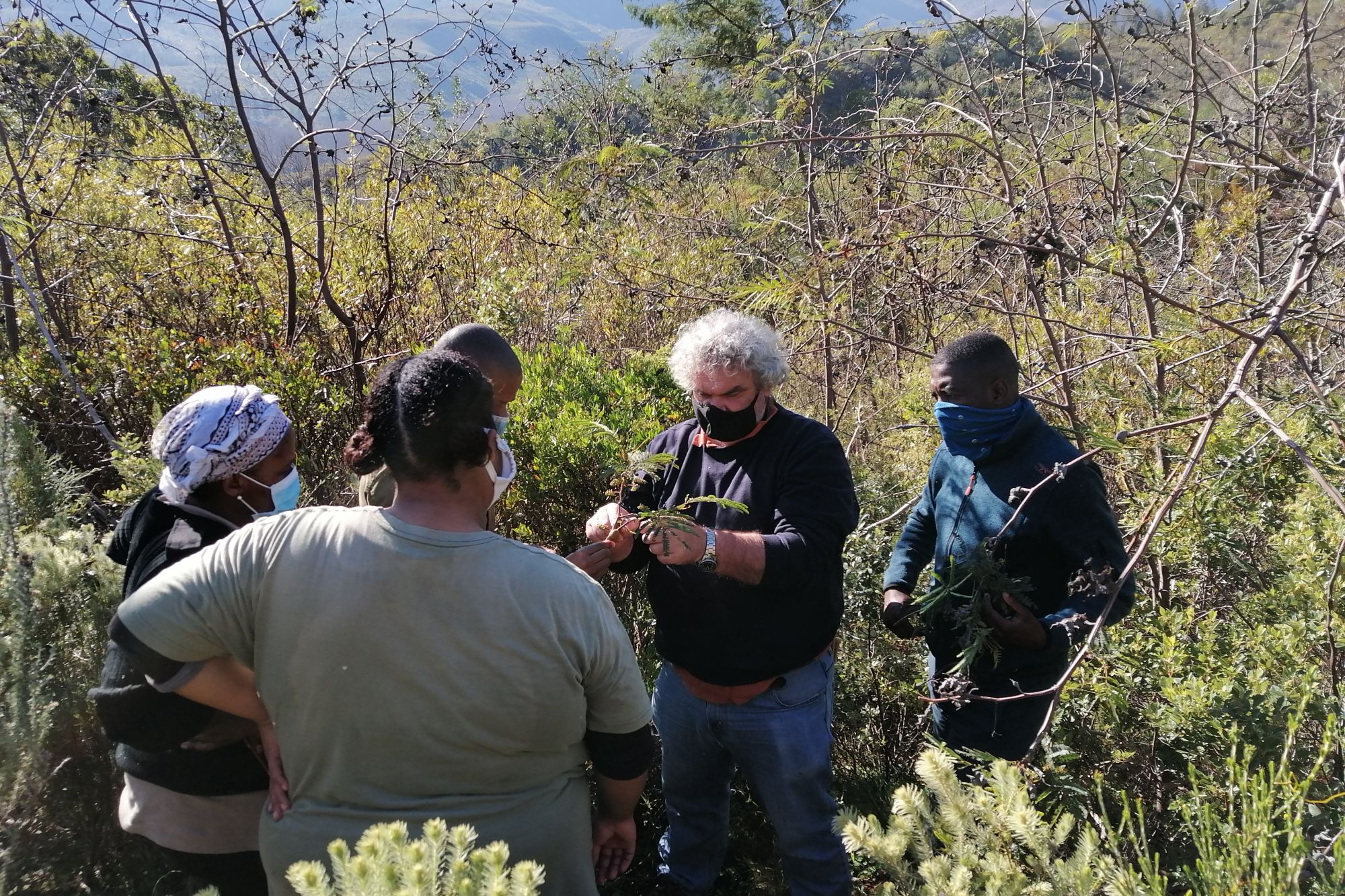
The eradication of stink bean at Assegaaibosch Nature Reserve
By Nkosinathi Moyo, Siphosethu Gwedlana and Leche Timmie, WIL Students at Jonkershoek Nature Reserve
On the 23 rd of July 2020, a biological control assessment of the success rate of a fungus pathogen used as a biocontrol agent on Paraserianthes lophantha (commonly known as Cape Wattle or stink bean), was conducted at Jonkershoek Nature Reserve. Alien Invasive species are detrimental to the survival of indigenous species and overall functionality of ecosystems. Paraserianthes lophantha is one of the most prevalent species at Jonkershoek. This plant competes with indigenous plants for nutrients, sunlight and water which are very crucial for plant growth, nourishment and development.

This shrub originated in Australia and was brought to South Africa for its ornamental value. In its country of origin, P. lophantha is a pioneer species, one of the first species to appear after a fire, with a rapid initial growth. The plant has also assumed this position in South Africa. This has been the case at Jonkershoek Nature Reserve, after a fire ravaged the Assegaaibosch Nature Reserve section in 2015, causing a massive outbreak of P. lophantha to appear.
The following year, it was noted that P. lophantha was taking over the parts of the reserve close to the streams. In order to deal with the spread of the plant, a fungus was introduced as a biological control agent. With the program spearheaded by Dr Allan Wood, a Plant Pathologist from the Agricultural Research Council (ARC), an initial release of the fungus was conducted at Jonkershoek Nature Reserve.
The fungus was released in 2016, and its effects only started kicking in this year. Dr Wood, explained how that the fungus works by targeting the flowering parts of the plant and consuming the energy that was reserved for the plant’s growth. The energy is then used by the fungus to multiply, producing fungi galls. These galls, unlike leaves, do not contain stomata, which controls the rate of water loss in the plant. Without the stomata, P. lophantha becomes stressed due to lack of water, rendering it moribund and ultimately dead.

At the site that the fungus was released it did a great job at destroying the aliens and Dr Wood was elated that the fungus worked relatively faster than expected. It also expected that the fungus will spread to nearby sites where it will also provide desirable outcomes. The purpose of the biological control agent was to reduce the amount of seeds produced by P. lophantha, decreasing its seed bank in the soil. He also reiterated that integrated management of alien species is more effective and thus the biocontrol can still be integrated with mechanical methods.




